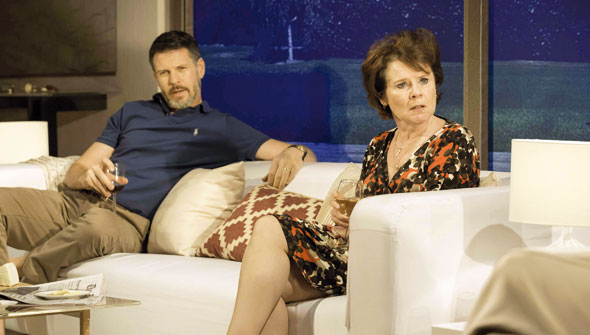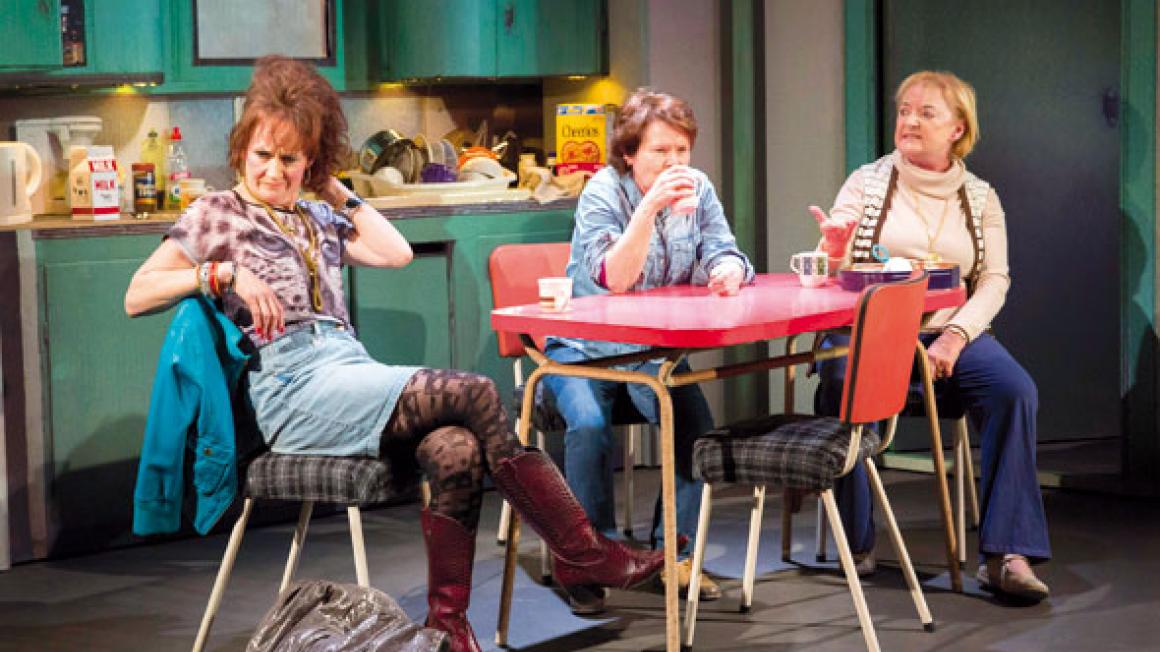GOOD PEOPLE
 What is the overwhelming British obsession: Race? Property? Religion? Money? I don’t actually know the right answer but I’ll bet it’s class. Pride And Prejudice, Kate Middleclass, toilet or loo. Who doesn’t notice who pours the milk in first? Last week, I overheard a conversation in which a mother-in-law-to-be said that she was ‘concerned’ that her daughter-in-law-to-be insisted on ‘setting’ rather than ‘laying’ the table. Heaven forfend! But only in Britain. (Or, possibly, only in Peter Jones.)
What is the overwhelming British obsession: Race? Property? Religion? Money? I don’t actually know the right answer but I’ll bet it’s class. Pride And Prejudice, Kate Middleclass, toilet or loo. Who doesn’t notice who pours the milk in first? Last week, I overheard a conversation in which a mother-in-law-to-be said that she was ‘concerned’ that her daughter-in-law-to-be insisted on ‘setting’ rather than ‘laying’ the table. Heaven forfend! But only in Britain. (Or, possibly, only in Peter Jones.) Or so I believed. David Lindsay-Abaire’s well-written, brilliantly well-characterised play, Good People, suggests that class and social mobility are also big issues in America, and becoming bigger ones as the gap between the haves and have-nots grows. Imelda Staunton’s Margie is a have-not – big time. But she is tough and resilient, although the crumpling of her face betrays her vulnerability and desperation. It’s a fantastic performance.
In the first scene, in a back alley behind the dollar store where she’s worked for years, she is fired for being late in. Again. A single mum in ‘Southie’, a poor, working-class area in South Boston, she relies on her landlady, Dolly, to come down and watch Joycie, her disabled, incontinent, adult daughter who can’t be left alone. If Dolly oversleeps or Joycie needs cleaning up, Margie can’t get away. Facing homelessness, she turns for help to Mikey, an old high-school boyfriend who escaped from Southie and became a leading fertility doctor. Lloyd Owen is spot on, tall, handsome but, most important, wholly aware of how far he’s left his past behind him.
In a superbly scratchy conversation in his office, Margie reminds him of old places and old friends, and makes him feel extremely uncomfortable about how comfortable he has become and forces him to ask her to his birthday party. When he rings later to cancel, she doesn’t believe him and turns up at his luxurious house in a smart suburb.

Hilarious moments abound. Not least when Mikey’s glamorous wife, literature prof Katy, mistakes Margie for the catering staff. Worse when Katy suggests Margie should baby-sit for their daughter and Mikey can’t bring himself to have his six-year-old princess looked after by someone so, well, like Margie. Worse, worse, when Margie ‘mentions’ to Katy that they’d been lovers. But infinitely worse when Margie tells them that Mikey is Joycie’s father.
GULP. And we all did. Just because Margie says it doesn’t make it true. But then we’re talking Imelda Staunton. And Imelda Staunton brings a special sort of honesty to her acting. See it and believe it. Or not. Wonderful theatre.
Until 5 April at Hampstead Theatre, Eton Avenue, Swiss Cottage, London NW3: 020-7722 9301, www.hampsteadtheatre.com


